#Monster of the Week
Text
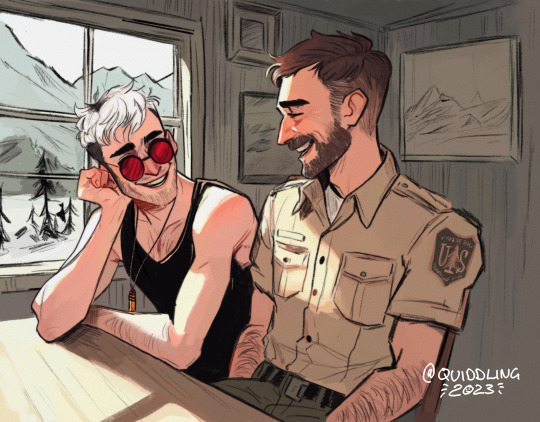
my friend, the mothman
#nothing but taz a art this october apparently#my art#art#digital art#fan art#fanart#motw#monster of the week#taz#the adventure zone#taz amnesty#amnesty#indrid cold#mothman#indrid cold the mothman#taz indrid#taz duck#duck newton#wayne newton#duck x indrid#indruck
4K notes
·
View notes
Text
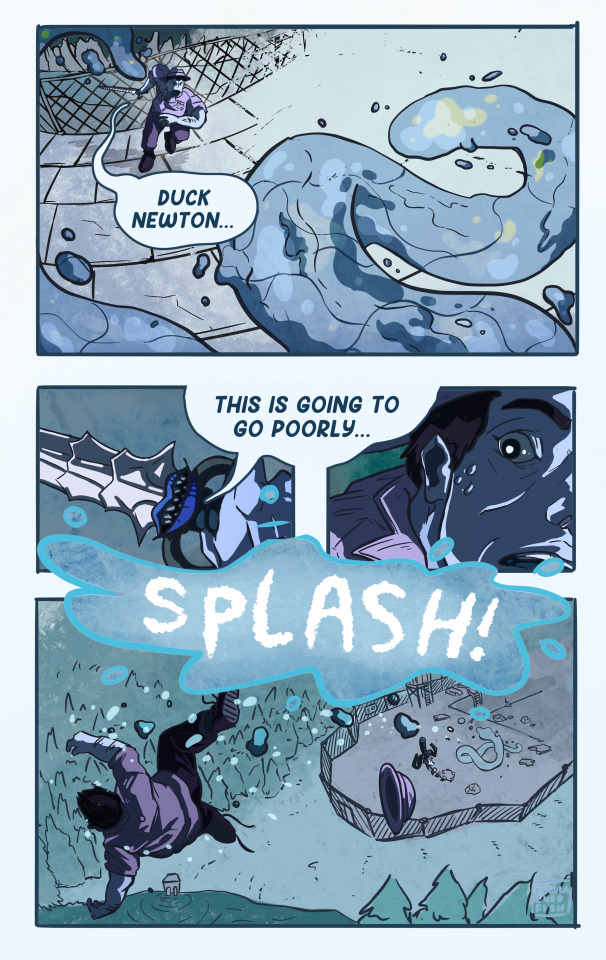
Okay, so I guess I'm... sprinting at it, just like "AAAAH" with Beacon extended, and I think there's a moment just before we collide where Beacon sort of like, almost half-whispers like,
Doing some comics practice with Episode 11 of Amnesty :)
(Tag list: @swanofstorie @raise-me-up-take-me-up @imflyingfish)
#TAZ#taz amnesty#the adventure zone#the zone cast#Taz:a#Duck Newton#Taz Duck#Taz Beacon#comic#fan art#fan comic#MOTW#monster of the week#justin mcelroy#h2whoa#nebulaeyedart#Guess whos relistening to amnesty bois#its me im relistening to amnesty#its been what 6 years and i still love Duck Newton#and his terrible terrible sword
2K notes
·
View notes
Text

Behold! The park rangers for Lookout!
Left to right: Jake T. Urkey, Izaiah Jackson, Abaddon Moss, Keiko Cain, Donovan Barlowe, and Roy.

#my art#abaddon moss#lookout#monster of the week#motw#the wronged#the chosen#the spooky#the mundane#the expert#the monstrous
245 notes
·
View notes
Text
Why I Dislike PbtA Games, and How Eureka: Investigative Urban Fantasy is Their Opposite

@tender-curiosities

It is no secret that I hate PbtA games.
Though due to a recent misunderstanding regarding another post, I’m going to preface this post by saying that this is going to be a very opinionated post and
I do not seriously think that PbtA games are inherently bad, though I may sometimes joke about this.
While I do often question the taste of people who make and play PbtA hacks, I do not think poorly of their moral character.
While I am going to call for PbtA to be used less as a base for games in the future, I’m not saying that the whole system and all games based on it should be destructified. It’s good for what it’s good for, but unless you’re doing that, I really think you should use something else.
Now that that is out of the way, here’s what I have to say about it.
My first experiences with PbtA games were pretty rough. Monster of the Week was not the first, but it was one of the first ‘indie’ TTRPGs I played after having previously played mostly only D&D3.5e and 5e. I really appreciated that the use of 2D6 over a D20 meant that the dice results would be more predictable, and I really liked the various “classes” I was seeing. (At this time, I didn’t really understand that they weren’t really “classes” at all, though I think I can be forgiven for this because many people, even people who like PbtA games, still talk like “classes” and “playbooks” are interchangeable.)
I was very enthusiastic to play, until it came time to start actually “making” a character, and found that I couldn’t “make” a character. I wanted to make a nuanced, three-dimensional PC who was simultaneously stereotype-affirming and stereotype-defying, with a unique backstory and dynamic with the other characters—but when I went to actually fill out the character sheet for basically any “class”, I found that most of the backstory and most of the personality for my character was being set for me by the playbook. It felt like the only thing about the character I really had a say in was their name, and that two PCs of the same playbook would actually turn out to be almost identical characters. At the time, I thought this was very restrictive and very bad design.
Later, now that I understand the design intent behind it, I still think of it as very restrictive, but I think of it as very bad design for me, not inherently bad.
When I play a TTRPG, I want more freedom in who my PC is. That doesn’t mean I want less rules, in fact having more rules can often increase freedom, but that’s a different post. I want to create original, unique characters, that I won’t see anywhere else. If it’s a class-based system, I want that class to barely touch the details of my character’s backstory or personality, so that I can come up with something original and engaging for why and how this “Fighter” fights. This means that two level-1 Fighters, despite having almost the same mechanical abilities, will potentially be very different people.
PbtA games don’t let you do that. In a lot of PbtA games, you’re not playing your own original character, you’re playing someone else’s character, that every other player that has picked up the same playbook before you has played. It’s more like “character select” than “character creation.” I think I could liken it to playing Mass Effect or The Witcher. Every player may pick a few different dialogue choices in those games that change the story, but we’re still all playing Shepherd or Geralt. No one is going to experience a new never-before-seen story in Mass Effect or The Witcher, which is very much a factor of them being video games and not TTRPGs, and therefore limited to the amount of code, writing, and voice-acting that can go into them.
This anonymous asker who sent a message to @thydungeongal seems to feel pretty similarly to me about PbtA games, and @thydungeongal's response is a very good response about how people find this appealing.
I have more respect for PbtA now than I did, but I still don't like it because to me it seems to play so much against what I consider to be the strengths of TTRPGs as a medium, much like how video games like The Last of Us and David Cage games play against the strengths of the medium of video games, and I will never like it. But other people clearly do, so to each their own.
Then another reason I don’t like it is because I think it’s oversaturating the TTRPG space. I’ve referred to PbtA before as “indie D&D5e”, and i do think that’s a reasonable comparison, because in much the same way that you always hear “D&D5e is a system that can do everything”, I think a lot of people seem to be under the impression that the PbtA system is a system that can do anything. It’s kinda the système du jour for indie TTRPGs right now, and many iterations of it make it clear that many designers do not consider how PbtA differs from more traditional TTRPGs, and how it is specialized for different types of TTRPG gameplay. Just like how I feel PbtA isn’t playing to certain important strengths of TTRPGs, I think that many—maybe even most—PbtA hacks don’t play to the strengths of PbtA. But this isn’t really PbtA’s fault, that comes down to any individual indie TTRPG developer on a case-by-case basis. And the cure for that is something I’m always saying: If you are going to be a writer, you have got to read lots of books. If you are going to be a director, you have got to watch lots of movies. If you are going to be a video game developer, you have got to play lots of video games. And if you are going to be a TTRPG designer, you have got to read and play lots of TTRPGs. That and you have to understand that TTRPGs are specialized. Even "agnostic" systems like PbtA are somewhat specialized, and therefore might really not be a great fit for the game you’re trying to make.
That and, to get more subjective again, there’s like an ocean of them, and I don’t even like the ones that are actually good.
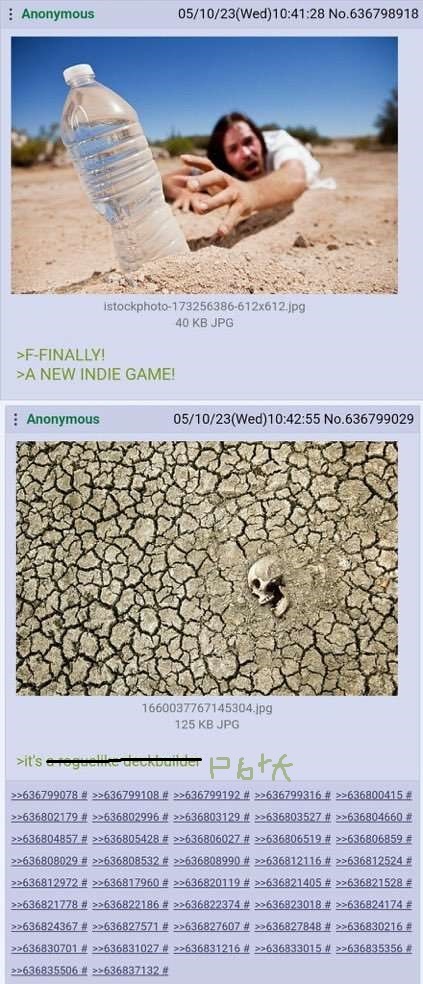
Now that I’ve talked about how I don’t like PbtA games, I’m gonna talk about a game I do like: Eureka: Investigative Urban Fantasy. Obviously, I like it because I’m the lead writer for it, but I would also like it even if I wasn’t the lead writer for it, because it’s just my kinda game. Eureka is the opposite of a PbtA game. I wrote it to play to what I feel are the strengths of the TTRPG medium.
Eureka’s character creation uses personality traits as a mechanical element of the character, but it does so in a deliberately freeform way. You build your character’s personality out of a list of traits, so who your character is is very much linked to what your character can do, but we aren’t just handing you a pre-made character.
Eureka is designed to incentivize organic decision-making by the PCs, most often by the mechanics of the game mirroring the world they live in. Every mechanic aims to create situations wherein “what will the PC do next?” is a question whose answer can be predicted - it doesn’t need to be ordained by a playbook.
One of my favorite examples of this is, rather than a “Fear Check” forcing the PC to run away if they fail, or “Run Away from Danger” being a “Move” on their character sheet, Eureka opts for the Composure mechanic. The really short version is that one of the main things that lowers a PC’s Composure is encountering scary stuff, and the lower a PC’s Composure, the more likely they are to fail skill checks, and the more likely they are to fail skill checks, well, the less brave they and their player probably feel about them standing up to this scary monster. So if the PC has low Composure, they are more likely to choose to run away. The lower their Composure, the better idea that will seem.
This system really really shines when it comes to monster PCs in Eureka. Most monsters benefit a lot more from having high Composure, but have fewer ways to restore Composure than mundane PCs. Their main way to restore their Composure is by eating people. The rulebook never says “your monster PC has to eat people”, but more likely than not, they’re going to be organically steered towards that by the game and world itself. Sure, they could decide to be “one of the good ones”, and just never eat people, just like you reading this could decide to stop eating food. You technically could, but when your body starts to fail, how long would you? (This is a big part of the themes of Eureka and what it has to say about crime, disability, mental illness, and evil. People don’t just arbitrarily do bad things, it is often their circumstances that leads them down that path until they see little choice for themselves in that matter, and “harmful” people are still just as deserving of life as people who “aren’t harmful”, but that really deserves its own post.)
It has been said that Eureka: Investigative Urban Fantasy actually arrives at much the same end as the PbtA game Monsterhearts, and I actually don’t disagree, but it gets there from an entirely different starting point and direction. The monster PCs in Eureka are very likely to eat people and cause drama, but it won’t be because they have “Eat People and Cause Drama” as a “Move” on their character sheet.
Monsters in Eureka have a lot of abilities, which they can use to solve (and create) problems as the emergent story emerges organically.
(Oh and Eureka is about adult investigators investigating mysteries, and sometimes those investigators are monsters, not about monster kids in high school, to be clear. The same “end” that Eureka and Monsterhearts reach is that of the monsters being prone to cause problems and drama due to the fact that they are monsters, though this isn’t the sole point of Eureka, just one element of it.)
You can pick up the free shareware version of this game from the download link on our website, or the full version for $5 from our Patreon.
And don’t forget, Eureka is fundraising on Kickstarter starting on April 10th, 2024! We need your support there most of all, to make sure we hit our goals and can afford to make the best version of Eureka we can make!
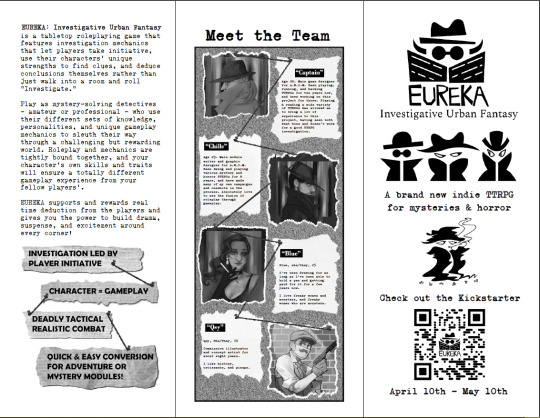
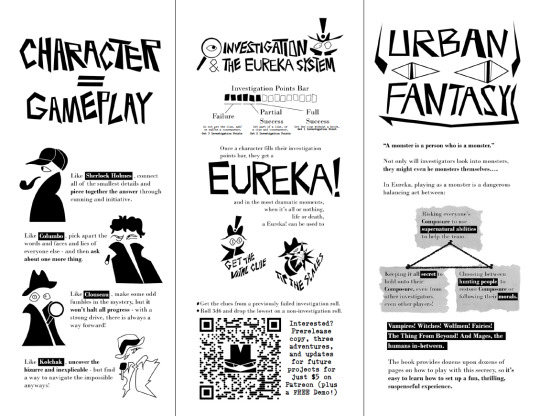
Interested in branching out but can’t get your group to play anything but D&D5e? Join us at the A.N.I.M. TTRPG Book Club, where we nominate, vote on, and play indie TTRPGs, all organized by our team with no strict schedule requirement! Here's the invite link! See you there!
We also have merchandise.

#eureka: investigative urban fantasy#ttrpg#rpg#roleplaying#eureka#tabletop#monsters#coc#allied forces#monsterhearts#pbta#powered by the apocalypse#motw#monster of the week#motw ttrpg#motw character#d&d 5e#d&d#dungeons and dragons#dnd#dnd5e#d&d5e#fighter#indie#indiegames#indie game#indie games#indie designer#ttrpg design#ttrpg community
222 notes
·
View notes
Text
Tabletop Roleplaying Systems as DHMIS Stills
Promethean: The Created

Shadowrun

Vampire: The Requiem

Hunter: The Vigil
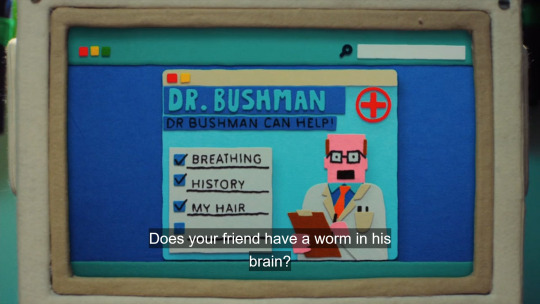
Shadow of the Demon Lord

Monster of the Week

GURPS
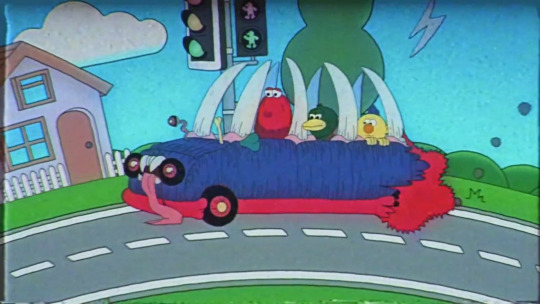
Dungeons & Dragons 5E/D&D One

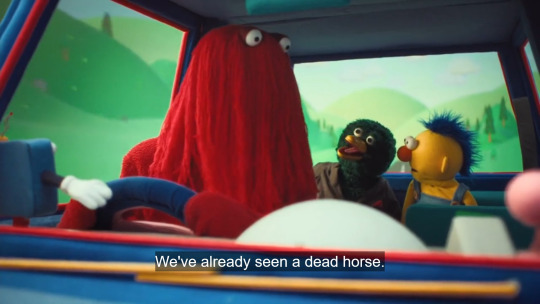
Starfinder
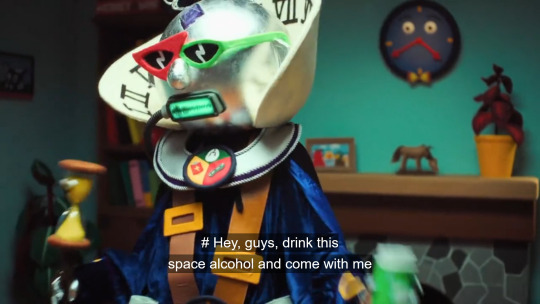
Call of Cthulhu
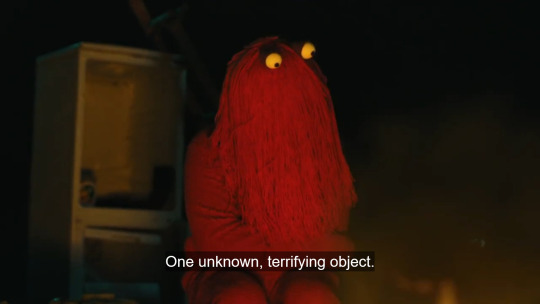
Eclipse Phase
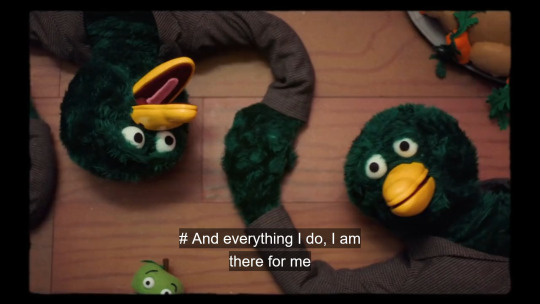
Delta Green


Mage: The Awakening
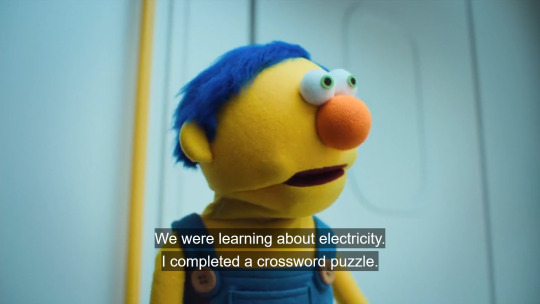

Don't Rest Your Head
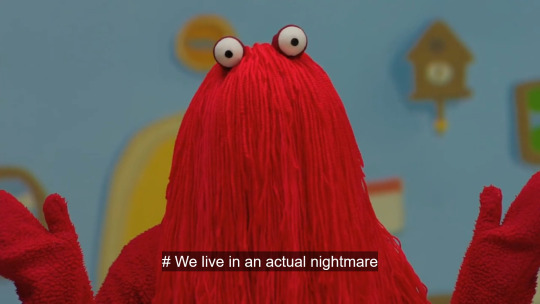
Cyberpunk RED
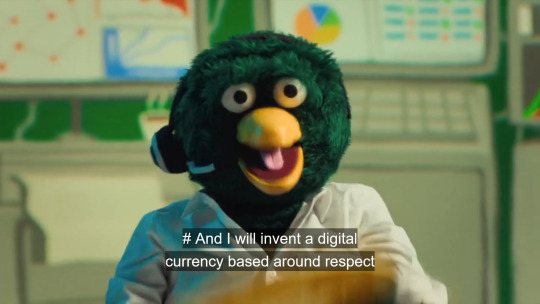
Lancer
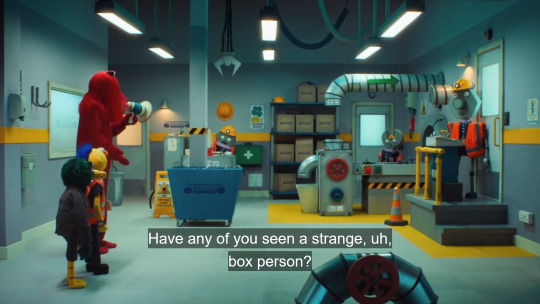
FATE Core
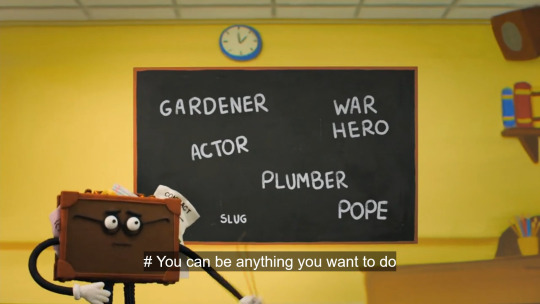
Literally Any Warhammer 40K TTRPG
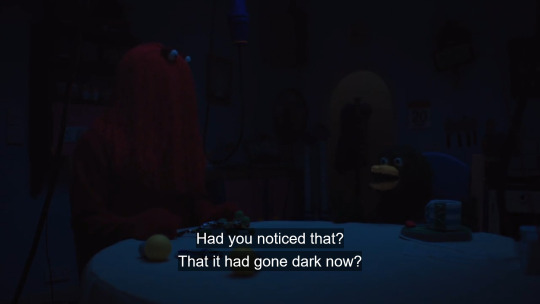
Transformers RPG

Pathfinder
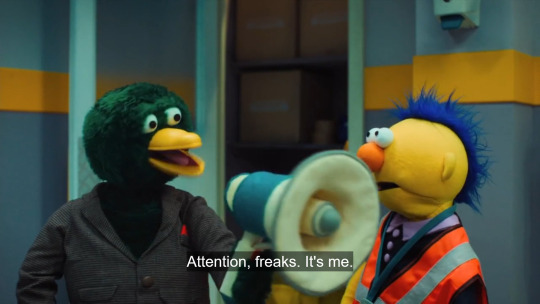
#d&d#dungeons and dragons#cyberpunk red#delta green#fate core#ttrpg#world of darkness#chronicles of darkness#mage the awakening#vampire the requiem#hunter the vigil#promethean the created#tabletop roleplaying#don't hug me i'm scared#lancer#lancer rpg#call of cthulhu#eclipse phase#starfinder#monster of the week#gurps#shadow of the demon lord
2K notes
·
View notes
Text
ok im actually really curious now
obligatory please reblog for a bigger sample size ect ect
edit: by occasionally i just mean you started as player and have continued to both DM and play
extra edit idk how ppl are missing it: it u started as a player and continue to both play AND dm use the "started as a player and occassionally DM" and if u started as a dm and continue to both play and DM choose " first time playing was dm and i have dmd since" the point of this is to gauge how many peoples first game was as DM vs how many ppls first game was as a player and how many people continue to play only one specific role, never play that role again, or play both roles for any given amount of time
539 notes
·
View notes
Text
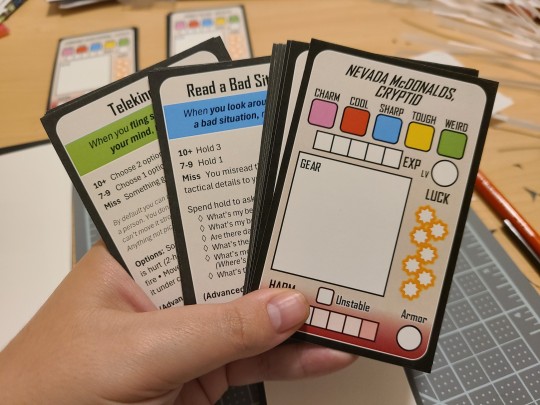
I made custom card decks for my Monster of the Week game! I ended up laminating them so players can use permanent and dry-erase marker to note advancements, stats, etc. (You can erase Sharpie by writing over it with Expo marker.)

I also have a larger, large-print set for a player with low vision (not pictured).
I'm working on making the Publisher file and PDF available as a template.
201 notes
·
View notes
Text

Finishing this show hurt
#illustration#illustrator#duck newton#taz balance#monster of the week#taz amnesty#the adventure zone#digital art#ned chicane#aubrey little#fanart
3K notes
·
View notes
Text
Hidden Monsters
For some reason this has been a bear (dragon, Vrathean, pick your Star Wars creature) to write, but I realized after this last episode of TBB that there was more to the “monster of the week” trope that we all love to get tired of in Star Wars, and specifically for our beloved Batch members. I believe that some of the main “monsters” each member of the Batch has faced and could face represent inner turmoil and the storms/dark things within that each of them has had to wrestle with. The choices each of them have made to tame or calm or live with the creatures they have encountered, instead of automatically killing them or choosing violence against them, is a powerful metaphor. Something that looks like a monster on the outside may not necessarily be a monster on the inside, when cared for and acknowledged properly.
Echo and the Rishi Eel

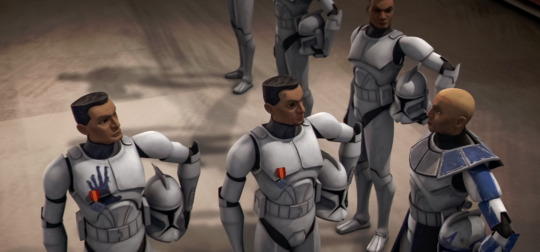
Echo’s very first mission on Rishi station involved a giant monster, a droid army invasion, watching his superior officer die in front of him, and losing most of his squad along with the entire outpost he had been assigned to help defend. After the Rishi station is overrun by battle droids, Echo, Fives, Hevy, and Cutup escape through an air vent only to land in the middle of what turns out to be the Rishi eel’s nest. Echo is second to last in line and has to watch as Cutup is snatched up by the eel right behind him and swallowed whole. Echo is the only one to look back and commemorate Cutup with his name and a sigh before they have to keep moving. He does the same at the end of the episode when they lose Hevy, thanking him for his self sacrifice. Echo’s mind—strategic, careful, hesitant, wanting to do the right thing—is always on his brothers and their safety, and his own fears and questioning give way to courage and determination as he watches his brothers do what needs to be done.
This formative experience is literally emblazoned on Echo’s chest and becomes part of his identity when Rex shoots the eel in the eye, wipes some of its blood on his hand, and presses it against Echo’s armor as he encourages him to keep going. This combination of bravery, looking death in the eye, and holding compassion for each of his brothers as they fall continues to be a running theme throughout Echo’s character arc—from holding 99 in his arms as he dies, to hanging in the Techno Union chamber where his mind and body were used to hunt down the brothers he loved, to overcoming the changes and loss he’s experienced and finding a new family with the Batch and Omega, to coming full circle and joining Rex to help free his brothers from the Empire’s grip. He has had to watch as brother after brother is taken away from him, but he has learned how to keep going in the face of loss. These experiences bring out who he is—caring, loyal, brave, resolute, and a symbol of endurance—and trace back to the very first monster he had to face.
Hunter, Omega, and the Ordo Moon Dragon

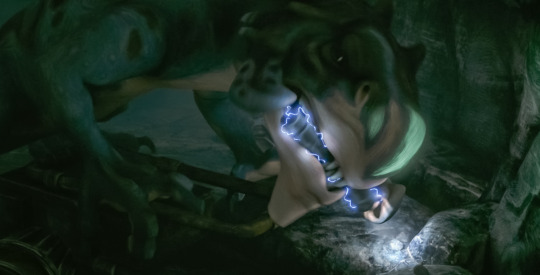

In season 1 the Batch is newly on the run from Kamino after Order 66, finding Omega, and losing Crosshair. They crash onto an uninhabited planet and while trying to repair their ship, an Ordo Moon Dragon makes off with their capacitor, leaving them stranded. Like the Zillo beast seen in season 2, it feeds on energy but is actually peaceful when not provoked. Hunter wants to track it down, by himself, but Omega insists on accompanying him. While tracking the creature, Omega brings up Crosshair’s absence, and Hunter is unwilling to even say Crosshair’s name, and he is very uncomfortable with the conversation. He is unwilling and unable to face his demons right now, and instead is wallowing in self-blame. Hunter won’t be able to fully face his inner turmoil until Crosshair returns and they encounter the Wyrm on Barton IV, another dragon-like creature which also burrows underground (although it is much, much larger, and more harmful than the Ordo Moon Dragon, signifying how much Hunter’s avoidance and resentment grows over time as it is not dealt with). It’s also interesting that this episode cuts back and forth to Crosshair fully under the influence of the chip and wiping out Saw Gurerra’s insurgents in a very violent manner.
Hunter ends up being knocked out by the creature and Omega takes her flashlight and his blaster to complete the mission, going alone into the tunnels where the dragon lives. What Omega learns is that she doesn’t need the blaster to deal with the situation. As scary as it is, she doesn’t have to kill the dragon or use violence against it, as it’s simply hungry and looking for food. The terrifying creature becomes a thing of beauty, green electric shocks running over its rainbow colored body, illuminating the tunnel and Omega’s face as it feeds on the flashlight she throws to it in exchange for their capacitor. The visuals mimic the teal and green rippling over the Vrathean that Omega and Ventress encounter and have to calm down in season 3 (more on that further on).
However, this wasn’t Omega’s mission. It was Hunter’s, but she ends up completing it for him. Omega learns a valuable lesson here, which fits in with her natural tendencies of drawing both people and animals to her caring, compassionate nature instead of judging them based on appearance, but I’m not sure that this was her ultimate trial in facing her own inner demons. (See my thoughts on why this is important at the end of this essay in the Ventress section.) This also was a failed attempt for Hunter, and he would end up facing his trial again in The Return in season 3.
Wrecker and the Rancor (Muchi)
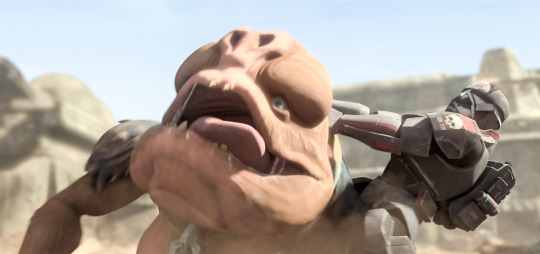
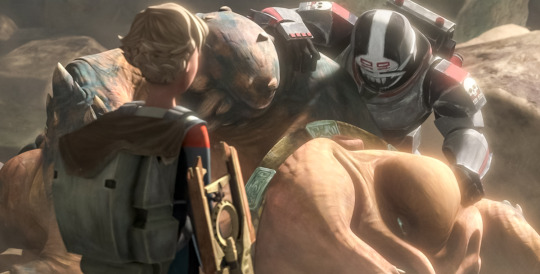
Wrecker was introduced as a character whose expertise is in explosives and making things blow up. He lives for making a ruckus and having a good time, but his strengths are engineered to be used for destruction.
Much of Wrecker’s character arc in season 1 is learning how to become more of an adult/parental figure for Omega, and how to put his own desires and needs aside in order to help take care of hers (letting her eat first, making a room for her in the gunners nest, watching out for her). In Rampage, the Batch is charged with rescuing a “child,” who they eventually find out is a young, ornery, and decidedly huge Rancor. Wrecker is the only one of them strong enough to sedate the creature after a lengthy bout of essentially hand to hand “combat.” They needed to bring Muchi back alive and Wrecker ends up gaining mutual affection and respect with her. Muchi is now calm and tamed enough that Omega can ride on her back with no fear or worry of danger.
Rancors adhere to a strict social and familial hierarchy, and have to challenge the alpha for authority. Wrecker starts out brash and boastful, and even though he is always caring, he becomes much more aware of his surroundings and his standing in their family unit as he grows in his responsibilities toward Omega. Rampage is shortly before his chip goes off, where he almost kills his entire squad. While his brute strength is an asset when used in the right ways, it is lethal if used for the wrong ones, and through his family bonds (especially with Omega) Wrecker is ultimately able to overcome the worst, chipped version of who he had been made to be, and instead be a source of safety and strength for Omega and his family.
Tech and the Zillo Beast

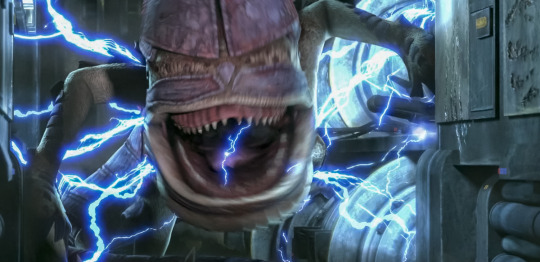
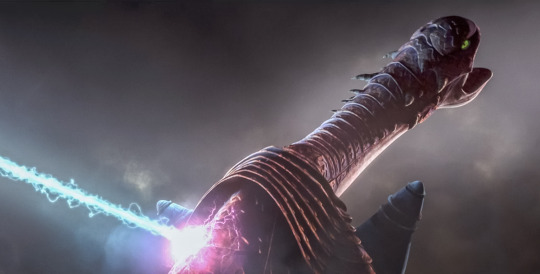

The Zillo beast is a marvel amongst Star Wars creatures. Its armor is impenetrable and highly valuable, and it feeds almost exclusively on energy, which allows it to become larger and morph into an even more powerful creature. When the Batch encounters it in season 2 in Metamorphasis, it tries to attack all of them, but Tech is the only one who is “fascinated” by the creature rather than scared of it. Similar to the Zillo beast feeding on energy, Tech’s mind was what he was known for, and he “fed” it by constantly consuming and integrating data about the world around him (which is transmitted by energy currents). During this episode Tech is confident in his own capabilities and extremely interested in learning more about the cloning technologies they were uncovering on this crashed ship. Tech’s research on the Zillo beast, while helpful, unfortunately comes too late and the Batch are unable to either put down or recapture the creature before it grows too strong for them to deal with. In the process, the Zillo beast escapes and is eventually recaptured by the Empire.
I’ve always been fascinated by the point in this episode where Tech is downloading the rest of the information from the terminal onto his data pad, and Hunter warns Omega that Imperials are inbound. She immediately tells Tech they need to go, and he refuses for a moment, saying he needs to finish capturing the data. If Omega did not pressure him to leave (and the electricity go out), he very well could have been standing there when ships bomb their location a few moments later, and gotten both himself and Omega killed for no good reason. At this moment his love of knowledge is overpowering his common sense and his love for his family, and it almost costs him everything.
Contrast this to a few moments later when he pulls Omega out of danger as they leave the ship, and Plan 99 when he chooses to sacrifice himself not for his own gain, but solely so his family has a chance to live. He had to face his greatest asset where it could also be his greatest failure, and learn how to prioritize and wield his strengths.
Crosshair and the Vulture
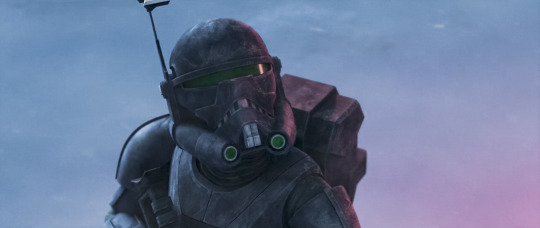

In The Outpost in season 2, Crosshair has spent almost two seasons engulfed in poor choices made both against his will (the chip), and of his own volition (staying with the Empire no matter what in pursuit of a sense of purpose and loyalty). His decisions are starting to grate on him and have led him down a dark path, but he hasn’t been fully ready to find a way to change them. When he lands on the icy planet of Barton IV, he encounters fearsome ice vultures shrieking overhead. He is told by the outpost’s commanding clone officer, Mayday, that the creatures are vicious, but admirable, because they find a way to survive.
Vultures signify both death and cleansing and are often feared and viewed with disgust, yet are an integral part of nature. Crosshair’s isolation and status as a clone soldier have put him in a precarious and often misjudged position, in ways he doesn’t even fully realize until this episode. His very life is in danger due to the Empire’s stance toward the clones, but so far Crosshair has believed that he is valuable to the Empire in ways that the regular clones are not. This attitude and perspective are severely challenged by Lieutenant Nolan, who speaks contemptuously both about and to every clone he encounters. Nolan’s lack of respect for them as soldiers, as officers, and even as people, is an extreme look at what Crosshair’s callousness and misplaced loyalty could lead him to if he is not careful. His fate is hanging in the balance.
After being sent on an inhumane mission to retrieve two crates of armor in a blinding snowstorm, Crosshair and Mayday are caught in an avalanche. After coming up out of the snow gasping for air, Crosshair could choose to get himself back to base and leave Mayday behind. Find a way to survive in the cold on his own, but kill the last of his compassion and personal values in the process. Instead, he chooses to put his life even more at risk to bring Mayday along with him.
Unfortunately for both of them, when they get back to base, Nolan has zero sympathy for their self-sacrifice, and allows Mayday to die unceremoniously on the platform from his wounds. Once again, a vulture is circling overhead, waiting to partake of its next meal. It signifies the threat of death but also Crosshair’s struggle and desire to survive. Crosshair is now staring his own lack of value and expendability in the face, and where he finds himself is now fully intolerable. He cannot continue on the way he has been without the very essence of who he is breaking irreparably in the process. Does he reclaim who he is, a compassionate and forceful individual who protects those he cares about? Or does he fall in line with what the Empire wants from him, knowing he will be discarded regardless?
Crosshair integrates his lesson in a visceral manner, his own personal traits mimicking the very essence of the ice vulture as he finally reorients his moral compass, takes a stand for himself and for his clone brothers, and takes vengeance on Lieutenant Nolan. His caution and inner turmoil are channeled into one desperate act as he becomes an agent/angel of death, the framing of the scene creating vulture-like wings spread on either side of him. He doesn’t expect to survive this encounter, choosing a path that looks like death on the outside but is cleansing and redeeming for him on the inside. He can now face the future as his whole, integrated self.
Hunter, Crosshair, the Vulture, and the Wyrm

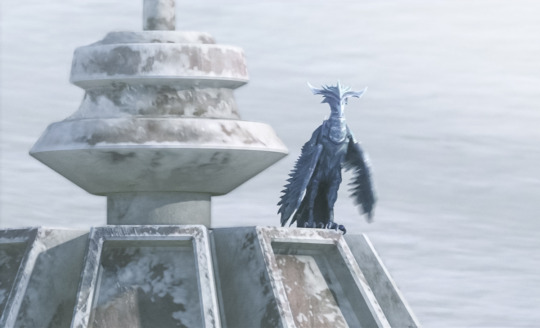
The vulture and its meaning for Crosshair, as well as Hunter’s cut-short encounter with the Ordo Moon Dragon, both have their bookends in season 3’s episode The Return. Crosshair has seen immense character growth after his choices in The Outpost, and has not only redeemed himself but has been given the chance to start reconciling with everyone he has hurt. This episode has two creatures that serve two important purposes: the vulture returns as a metaphor for Crosshair’s need to reconcile with and forgive himself, and a new creature, a giant wyrm (nice Dune reference there, Star Wars) highlights the fractured rift between him and Hunter, and the anger, distrust, and resentment that Hunter has been running from since Aftermath.
The Batch has returned to Barton IV, and Crosshair is greeted by the ice vulture as they land. The weather is calm and clear this time, and the creature is observing him but not in a threatening way. At the same time, tensions rise to a breaking point between Hunter and Crosshair and a long-awaited argument starts between them. Before it can be resolved, the wyrm erupts out of the ground and puts all of their lives in danger. It had been kept at bay previously by high-pitched noises, (oddly similar to Hunter’s enhanced senses, which he has been so distracted from that he wasn’t aware of the danger ahead of time) and lived underneath the same snow that had buried Crosshair and Mayday.
In their efforts to draw the creature away from the outpost so they can turn the sensors back on, Hunter falls through the snow into the wyrm’s tunnels. Crosshair has already had his inner journey underneath the snow on Barton IV. This time, Hunter has to finally face his own struggles. Every step of the way he has been running and hiding, trying to keep his family and Omega safe by keeping them away from the Empire, away from Crosshair, away from danger, but failing miserably. This time, Hunter could simply let Crosshair haul him back up to the surface when he reaches the spot where Crosshair and Batcher have dug a hole in the ice to pull him out. But he hasn’t confirmed that the wyrm is actually past the boundary and that it is safe to turn the perimeter sensors back on. This time, Hunter stays below the surface, and keeps himself in harms way until he is absolutely sure that his family is safe and that his own emotions have been worked through. He is starting to take responsibility for his journey. His senses start to kick in again and he refuses to leave the tunnel until the wyrm is barreling down his neck, and then he finally accepts Crosshair’s help. Both of them run to safety, the perimeter beacons turn on, and the wyrm is now on the other side of an invisible barrier of sound, harmless and chastened until it finally slinks away.
The boys exchange glances and nods. Their rift has been bridged and they are both willing to move forward, together. This is proven by the end of the episode, where Crosshair, who has remained closed off and unwilling to discuss what he’s been through, opens up slightly to Hunter before they leave, and Hunter responds with forgiveness, acknowledgement, and hope for the future. And for now, it’s enough. Crosshair looks into the sky and watches the ice vulture flying overhead once again. Except this time, it flies off into the sunset, signifying that his lessons from this planet have been fully learned, that the spirit of survival in the face of death that he has been carrying with him can now be put towards living and thriving again. Both Hunter and Crosshair are leaving slightly more whole than when they first arrived, both as individuals and in their restored relationship with each other.
Ventress, Omega, and the Vrathean


Omega gets a second chance at taming a terrifying creature in The Harbinger in season 3. After Asajj Ventress shows up on Pabu to help the Batch figure out the m-count conundrum that makes Omega’s blood so valuable to the Empire, (and after Omega has begged her to stay and test her capabilities), she and Omega go out onto the ocean to test Omega’s potential Force sensitivity. (Also after Ventress had to whoop the boys’ backsides to get them to slightly trust her, but we won’t go into that here).
Throughout this season, (and really for most of her life), Omega has…not been doing well. Her time on Tantiss, leaving the rest of the clones imprisoned there behind when she and Crosshair escaped, and the relentless pursuit of her by the Empire has truly traumatized her and made her single-mindedly want to know why she is always in danger and putting everyone else around her in danger as well. Her mental health has been spiraling a bit and her inner turmoil is starting to rival Crosshair’s in season 2. She knows that m-count is important and is also thrilled at Ventress mentioning the Jedi, while the rest of the Batch and Ventress herself are very somber about the prospect that Omega might have Force capabilities. However, in her desire to have answers, she ends up being very impatient and frustrated and doesn’t even show her typical level of optimism and concentration in working through Ventress’ tests for her. It’s almost like her goal (finding answers) is at odds with what her idea of finding those answers looks like.
After having tried and failed to “reach out” to the Force to summon anything, Omega pouts and sits back down in the boat, seemingly defeated. Ventress has asked her to try to connect to nature, probably because she has seen Omega’s connection to Batcher and assumes that might be more in line with whatever her gifting might be. Two of Omega’s main traits and strengths are her optimism in the face of defeat, and her compassion toward literally every living thing she encounters. She is always curious, generous, caring, and wanting to connect with others. Which makes it even more curious that she is so easily stumped and disconnected by this exercise. She challenges Ventress to prove why *she* is the best person to be teaching Omega this lesson, and Ventress sighs but gently and carefully shows her powers by calling up a school of glowing green fish from the water. “I’m not the one holding back,” she tells Omega.
After a peaceful moment, however, another creature, this time a giant and tentacled Vrathean, emerges from the water as well and starts hunting Ventress and Omega down. It’s unclear if Ventress actually called the creature up herself or not, but if she did it was not intentional. She helps rescue Omega from the creature’s clutches and then chooses to put herself in more danger by letting it grab her, and communing with it through the Force as it tries to eat her. The deadly creature becomes a thing of astonishing beauty as the color of the sea ripples over its body and its eyes soften and recognize Ventress as a sentient being.
This is where it gets interesting, because this peacefulness, calm, and compassion is not something we would have associated with prior versions of Ventress. Her experiences and growth throughout the Clone Wars, her associations with Ahsoka and Quinlan, and her choices have turned her into a much softer and stronger version of herself. This has now become her trial by allowing her to showcase just how much she has changed, and how much her own worldview has flipped.
This is an incredible example for Omega, but similar to how she took Hunter’s trial for him in Replacement, Ventress has now filled what was supposed to be hers. This begs the question, what is Omega actually holding back on? Is she really Force sensitive? Or is just her compassion and tenderness toward everyone around her overtaking her in unhealthy ways? She has always had a tendency to put herself in harms way in an attempt to make up for the complications her presence brings her brothers.
Omega will have to face these implied monsters at some point. I’m not actually certain that she will end up facing a creature like everyone else has—there’s the possibility that because she naturally has more affinity with creatures and beings that look monstrous but really aren’t, she may end up facing her inner demons in another manner. Will it be a person instead? Or a choice? Even, might I say, an identity crisis? It remains to be seen, but the fact that she must face it in order to overcome and integrate it is unquestionable.
#the bad batch#tbb#star wars#tbb spoilers#the bad batch spoilers#the clone wars#tcw#rishi eel#vrathean#wyrm#vulture#ordo moon dragon#monsters#creatures#star wars creatures#crosshair#hunter#echo#omega#wrecker#ventress#long post#meta#star wars meta#tbb meta#character analysis#somelightramblings#some light ramblings#monster of the week
112 notes
·
View notes
Text
Have you played MONSTER OF THE WEEK ?
By Michael Sands
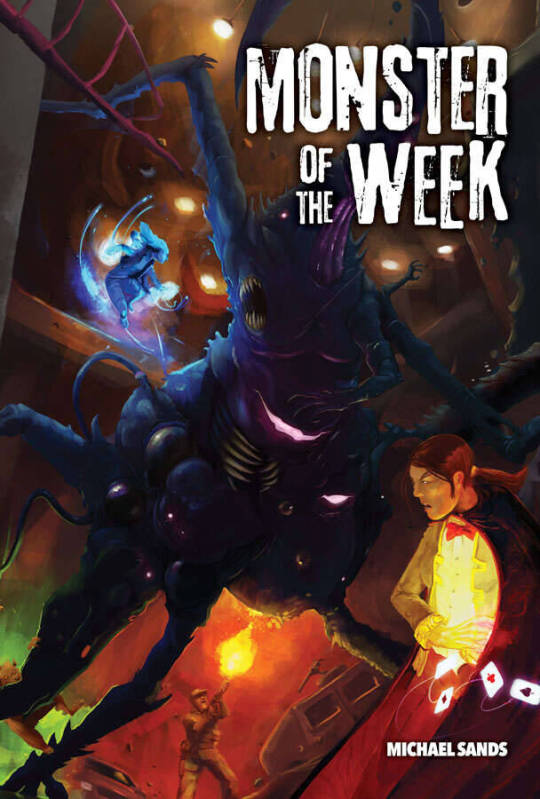
Most people don’t believe in monsters, but you know the truth. They’re real, and it’s your task to bring them down.
Monster of the Week is a standalone action-horror RPG for 3-5 people. Hunt high school beasties a la Buffy the Vampire Slayer, travel the country to bring down unnatural creatures like the Winchester brothers of Supernatural, or head up the government investigation like Mulder and Scully. This book contains everything you need to tackle Bigfoot, collar a chupacabra, and drive away demons.
A Powered by the Apocalypse game
143 notes
·
View notes
Text
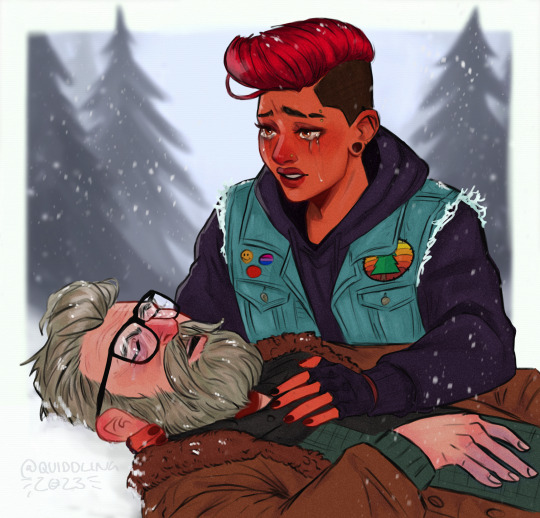
you just hear the wind, and you just see the stars above you. they are beautiful... and then they’re gone.
(redraw of this one)
#my art#art#digital art#fan art#fanart#drawing#monster of the week#taz#the adventure zone#the zone cast#taz amnesty#amnesty#aubrey little#ned chicane#amnesty spoilers#the adventure zone amnesty#taz amnesty episode 28#procreate
2K notes
·
View notes
Text
Starting my motw campaign: "Hey, it might be cool to add political intrigue to the magical underworld."
Now, over a year in: "These are the factions that control the former united states."
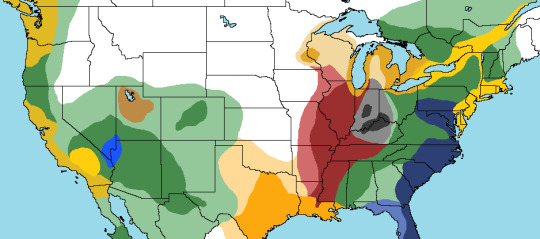
#motw campaign#motw ttrpg#motw rpg#motw#monster of the week#pbta#powered by the apocalypse#ttrpg#indie ttrpg#ttrpg community#rpg#ttrpg campaign#dnd#dnd campaign#alternate history#map#fantasy map#urban fantasy
259 notes
·
View notes
Text

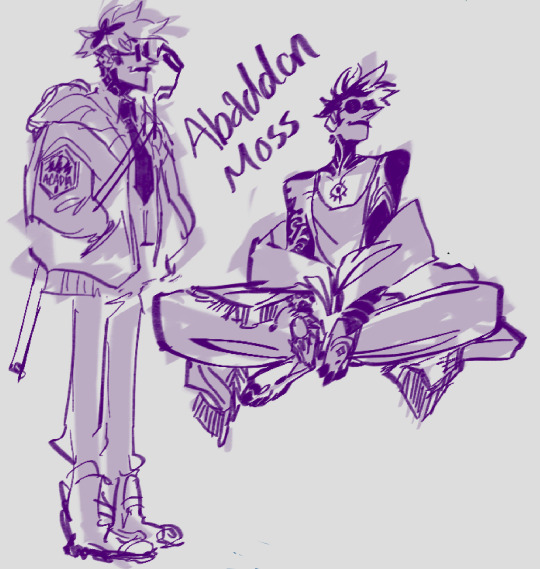
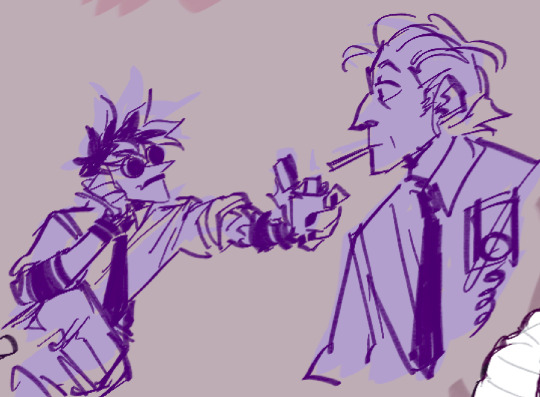
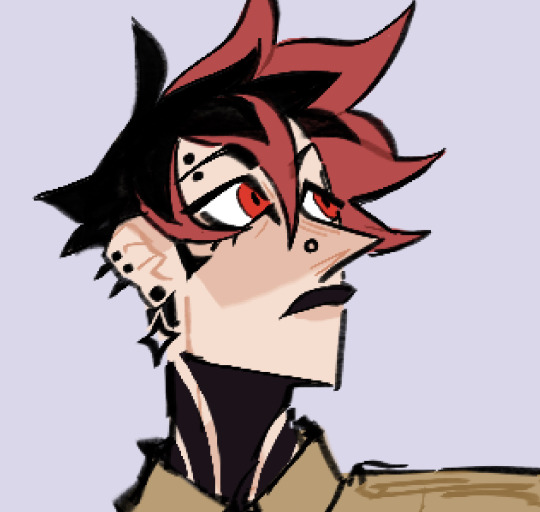
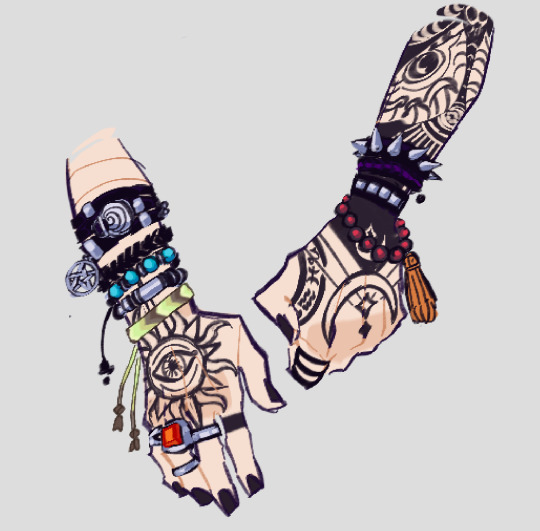
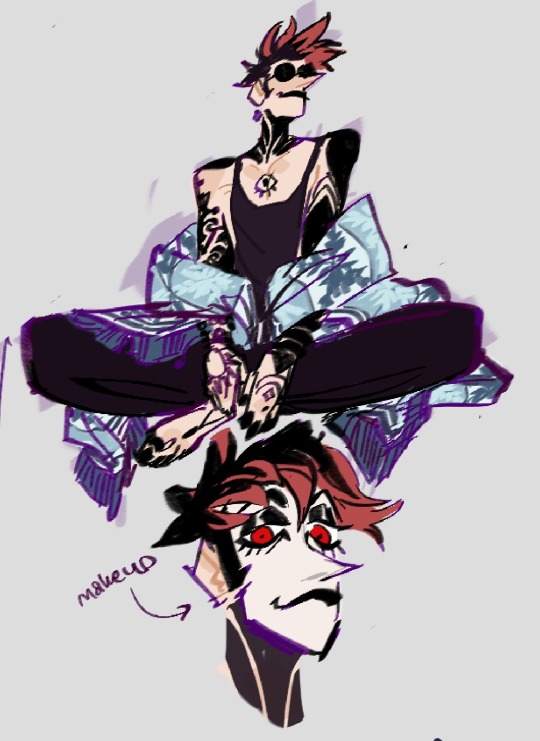
*shyly posts my MoTW character*
This is my OC Abaddon he’s using the Spooky playbook :)
He’s a park ranger at a cryptid national park (created by @piwiikiwii )
342 notes
·
View notes
Text
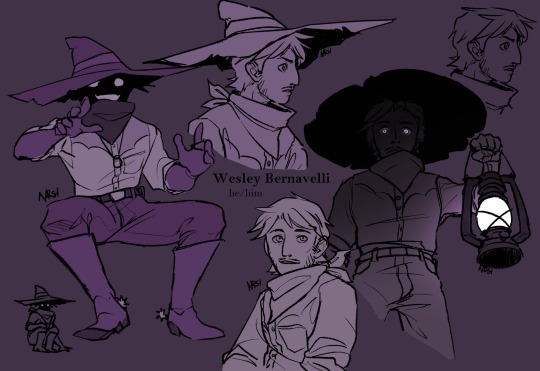
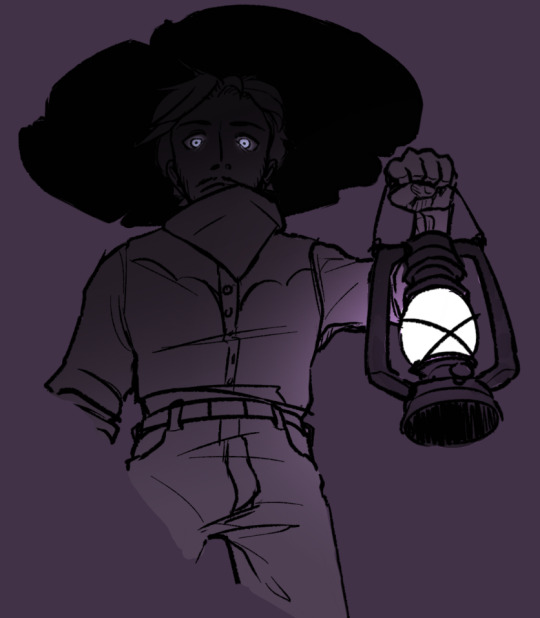
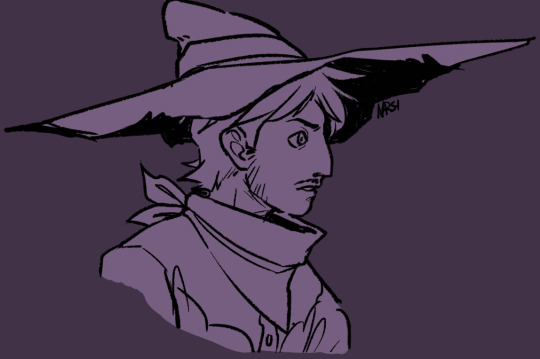
SOMETIMES YOU MAKE A NEW CHARACTER FOR MONSTER OF THE WEEK AND YOU GET A LITTLE OBSESSED WITH THEM
This is Wesley Bernavelli (he/him) !!!! he's a Hex cowboy witch B))))) think anathema device or perhaps shrink and forcible from coraline, that brand of witchy
he's perhaps.... a little weird...
#monster of the week#motw#The Hex#cowboy#witch#cowboy witch#Wesley Bernavelli#original character#oc#my oc#eye contact#dnd character#i'll be playing him in a campaign my friends are playing with me and im so excited!!!!!!!!!!!!!!!!!!!!!!!!!!!!!!!!!!!!!!!!#RRRRAAAAAAAAAAAAAAAAAAAAAAAAA#my art#he's like#he's normal in a weird way in that he's passionate about the rotes and other spells he does and will happily talk about them#and spin a tale#you know. the works#but!!! he's still kinda creepy and secretive and will look off into the horizon sometimes where you're sure he's seeing something you're no#and say some cryptic shit that you just have to deal with#also his eyes glow a little bit but just in that way cats' eyes reflect#i didn't design a face for him at first but i like him <3333333333333#he both has no face and has a face and that's wonderful
280 notes
·
View notes
Photo
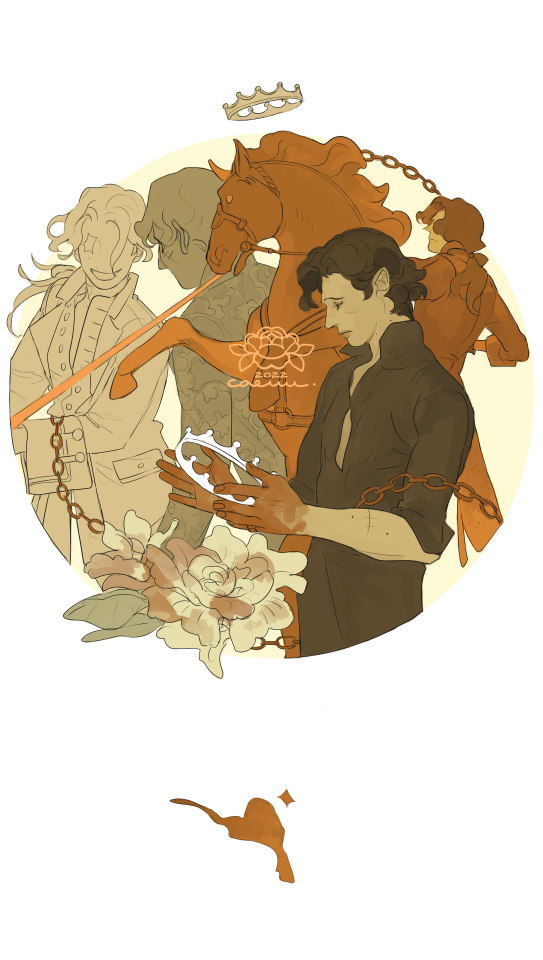
[1812]
2K notes
·
View notes
Text
Its been a year since the first community build-a-threat, lets do another!
Thats right! I'm doing another community build a threat! And with poll choices going up to 12 now, we should be able to fit all options in one poll!
So, lets start!
This will last a day, so vote when you can!
131 notes
·
View notes